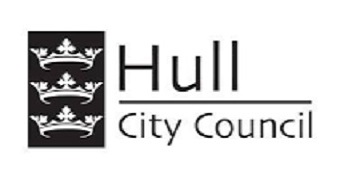Teesside University unveils plan for local digital growth
 Universities are playing an increasing role in local economic development. Professor Jane Turner outlines why Teesside University has stepped up to the challenge.
Universities are playing an increasing role in local economic development. Professor Jane Turner outlines why Teesside University has stepped up to the challenge.
When an area experiences the closure of a key industry, it puts under the spotlight the role and responsibilities of a local university in helping to drive economic renewal.
As universities we all talk about business support, or business engagement, but when the question comes up around ‘well, what do we do now?’ we have an obligation to step up to the table.
DigitalCity – Catalyst for Growth was launched last week by Teesside University and sets out the university’s plan of action for supporting economic growth and inward investment in the region.
Our vision is a five-point plan for the region to become recognised for the ‘superior digital capability of its businesses’. It gives the Tees Valley a much-needed focus just 18 months after the area suffered an economic blow with the closure of the SSI steelworks plant.
DigitalCity is a partnership between the University and the Tees Valley Combined Authority, which works with digital and non-digital businesses to stimulate innovation and investment. It builds on the recommendations in Lord Heseltine’s Tees Valley: Opportunity Unlimited report to secure a ‘strong and sustainable economic future for the Tees Valley’ following the end of steel production in the region.
But why focus on digital? Digital defines the way we do business today. For traditional industries, the extent to which they adapt to digital change is a major factor in deciding whether they succeed, stall or fail in the future. At the same time, digital is the driving force powering the growth of new businesses and new sectors.
So what exactly are we doing? Specifically, we are focusing on five key areas as a catalyst for growth within the Tees Valley. We will create a new generation of digital businesses – nurturing digital start-ups and providing hubs where they can grow. We will support the growth of businesses through digital – unlocking the growth potential of traditional businesses through digital innovation.
We will transform sectors with digital knowledge, providing businesses with research and expertise to improve their competitiveness. We will prepare businesses for Industry 4.0, helping businesses get ready for the influence of automation and digital supply chains. And we will grow digital skills and talent, giving people and businesses the digital know-how they need for the future.
DigitalCity – Catalyst for Growth provides an opportunity for the Tees Valley to put real power behind its ambitious plans for the economy. This will include directly supporting Tees Valley targets to increase start-ups by 25% and creating 25,000 jobs by 2025, and helping to close the regional and national digital skills gap which costs the UK £63bn a year in lost GDP.
We are also ramping up efforts to tackle the wider digital challenges that have the potential to hold the UK back regionally and nationally. For example, women are under-represented in digital businesses in the UK. We’re bridging that gap by encouraging more women to come on our courses and to actively consider a career in digital, so that ultimately half of digital businesses in the Tees Valley have female leaders.
If we ensure the people who work in the Tees Valley have the digital skills we need for the future, we can grow employment through creating new digital businesses and high-value jobs.
If we support businesses in building their digital capability, we can help them evolve so they can support the growth of the existing and emerging sectors we need for a strong and productive Tees Valley economy. And if we do each of those things well, we have the opportunity to secure a national and international reputation for a Tees Valley digital cluster with cutting-edge skills, attracting more businesses to come here and work with us in their supply chains.
We believe that it is only by working together – with government, partners and businesses – that we can really fulfil the potential we see for the Tees Valley.







 Network
Network
